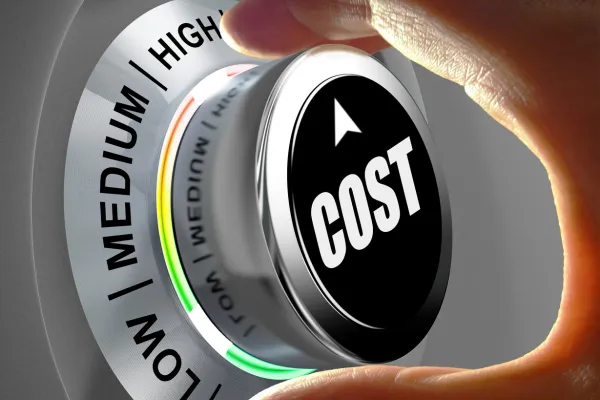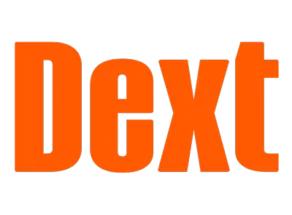OUR BLOG
Your hub for insightful and actionable content to help you unlock the potential of your business.

5 Ways to Manage & Control Your Material Costs
For any service or trades-based business owner, managing and controlling material costs is one of your most critical tasks. Material costs can quickly spiral out of control and eat your profits if not handled effectively. However, with the right strategies, you can control your material costs and boost your bottom line. Here are five ways to manage and control your material costs:
Regularly Review Your Material Costs
The first step in managing your material costs is to review them regularly. You should keep track of the costs of each material you purchase and compare them to the prices you paid in the past. Doing this lets you identify trends and make informed decisions on when to buy materials for the best price. You can also identify suppliers that consistently offer the best prices.
While some businesses don’t typically rely on raw materials as much as manufacturing or construction businesses, they may still struggle with fluctuating material costs in certain situations. Here are some examples of service and trade-based businesses that often face challenges in managing their material costs:
HVAC Services: HVAC services may use materials such as refrigerants, filters, and other components, which can have varying prices depending on market conditions and availability.
Landscaping Companies: Landscaping companies use various materials such as plants, soil, and mulch, and the prices of these materials can fluctuate based on supply and demand, weather conditions, and other factors.
Cleaning Services: Cleaning services may use cleaning supplies, chemicals, and equipment, which can have varying prices depending on market conditions.
Automotive Repair Shops: Automotive repair shops may use parts, tires, and other materials with varying prices depending on market conditions and availability.
Pest Control Services: Pest control services may use chemicals and other materials to control pests, and the prices of these materials can vary depending on market conditions and regulations.
Let our team help you closely monitor your material costs and implement effective cost management strategies. Together we can help to minimize the impact of price fluctuations and help you remain competitive in your field.
Buy in Bulk
Another way to manage your material costs is to buy in bulk. Purchasing materials in bulk can save you money, especially if you can negotiate a discount with your supplier. However, you need to ensure that you have enough storage space for the materials you purchase, and you need to factor in the cost of storage and handling.
Here are some examples of businesses that could benefit from buying in bulk:
Cleaning Services: Cleaning services require various cleaning supplies and chemicals to perform their work, including disinfectants, cleaning solutions, and paper products. By buying these materials in bulk, cleaning services can often negotiate lower prices and reduce their overall material costs.
Landscaping Companies: Landscaping companies require various materials such as plants, mulch, and fertilizer, which can be expensive if purchased in small quantities. Landscaping companies can often secure lower prices and reduce their overall material costs by buying these materials in bulk.
Automotive Repair Shops: Automotive repair shops require various parts, including filters, belts, and brake pads, which can be costly if purchased individually. By buying these parts in bulk, automotive repair shops can often negotiate lower prices and reduce their overall material costs.
Pest Control Services: Pest control services require various chemicals and pesticides to perform their work. Pest control services can often secure lower prices and reduce their overall material costs by buying these materials in bulk.
HVAC Services: HVAC services require various components such as filters, thermostats, and refrigerants. Buying these components in bulk means that HVAC services can often negotiate lower prices and reduce their overall material costs.
We can help you identify any bulk purchase opportunities that will assist you in lowering your material costs. By negotiating lower prices and reducing your overall material costs, your business can increase profits and remain competitive.
Plan Your Purchases
Planning your purchases is essential to managing your material costs. You need to understand your inventory levels and upcoming projects well to make informed decisions about when to purchase materials. Planning your purchases can help you avoid overstocking, which can tie up your cash flow, or understocking, which can result in delays and additional expenses.
Here are some examples of businesses that could minimize their material costs through detailed project planning:
Event Planning Services: Event planning services require various materials, such as decorations, lighting, and sound equipment. Event planning services can often take advantage of sales and discounts and reduce their overall material costs by planning and purchasing these materials in advance.
Construction Companies: Construction companies require lumber, concrete, and steel to complete their projects. Construction companies can often secure better pricing and reduce their overall material costs by planning and purchasing these materials in advance.
Landscaping Companies: Landscaping companies require various materials, such as plants, mulch, and soil, to complete their projects. Landscape landscaping companies can often take advantage of seasonal discounts and reduce their overall material costs by planning and purchasing these materials in advance.
Painting Contractors: Painting contractors require various materials such as paint, brushes, and rollers to complete their projects. By planning and purchasing these materials in advance, painting contractors can often take advantage of bulk discounts and reduce their overall material costs.
Interior Design Services: Interior design services require various materials, such as furniture, fabrics, and decorative items. By planning and purchasing these materials in advance, interior design services can often take advantage of sales and promotions and reduce their overall material costs.
You can reduce your overall material costs and increase your profits by taking advantage of discounts, promotions, and seasonal pricing.
Track Your Material Usage
Tracking your material usage is critical to controlling your material costs. You need to record the materials you use on each project and compare them to the estimated amounts. By doing this, you can identify areas where you may be using more materials than necessary and take steps to reduce waste.
Here are some examples of businesses that should be tracking their material usage:
Print Shops: Print shops use various materials, such as ink, paper, and toner, to produce printed materials. By tracking their material usage, print shops can identify any inefficiencies and optimize their material usage to reduce waste and minimize costs.
Catering Services: Catering services require various materials such as food, plates, and utensils to provide their services. By tracking their material usage, catering services can identify waste and adjust their menus and ordering processes to minimize material costs.
Plumbing Services: Plumbing services require various materials, such as pipes, fittings, and valves, to perform their work. By tracking their material usage, plumbing services can identify waste and optimize inventory management processes to reduce material costs.
Electrical Services: Electrical services require various materials such as wires, switches, and outlets to perform their work. By tracking their material usage, electrical services can identify waste and adjust their ordering and inventory management processes to minimize material costs.
Roofing Contractors: To complete their projects, they require shingles, tiles, and roofing membranes. By tracking their material usage, roofing contractors can identify waste and adjust their installation processes to minimize material costs.
By identifying inefficiencies and waste, your business can adjust its processes and optimize its material usage to minimize costs and increase profits.
Use Technology to Your Advantage
Finally, technology can help you manage and control your material costs. Many software programs and apps can help you track your resource levels, labour costs, purchases, and usage. Our team of professionals can assist you in finding the perfect solution to fit your business’s needs.
Using technology to your advantage, you can make informed decisions about when to purchase materials, reduce waste, and increase your profits.
According to industry leaders, some of the top platforms for small businesses to consider for material cost control are:
QuickBooks: QuickBooks is a top accounting software for small businesses to track their expenses, including material costs. The software enables users to categorize expenses, create purchase orders, and track inventory levels.
Xero: Xero is another top accounting software for small businesses to track their expenses, including material costs. The software enables users to create purchase orders, track inventory levels, and generate reports to monitor material costs.
Jobber: Jobber is a field service management software and app is the best way to organize your service business. Quote, schedule, invoice, and get paid—all in one.
Knowify: Knowify empowers trade and subcontractors with the tools and insights to manage their finances, teams, and projects more effectively.
As you can see from the information above, managing and controlling your labour and material costs is critical to the success of your business. By regularly reviewing your costs, buying in bulk, planning your purchases, tracking your material usage, and using technology to your advantage, you can effectively manage your material costs and boost your profits.






